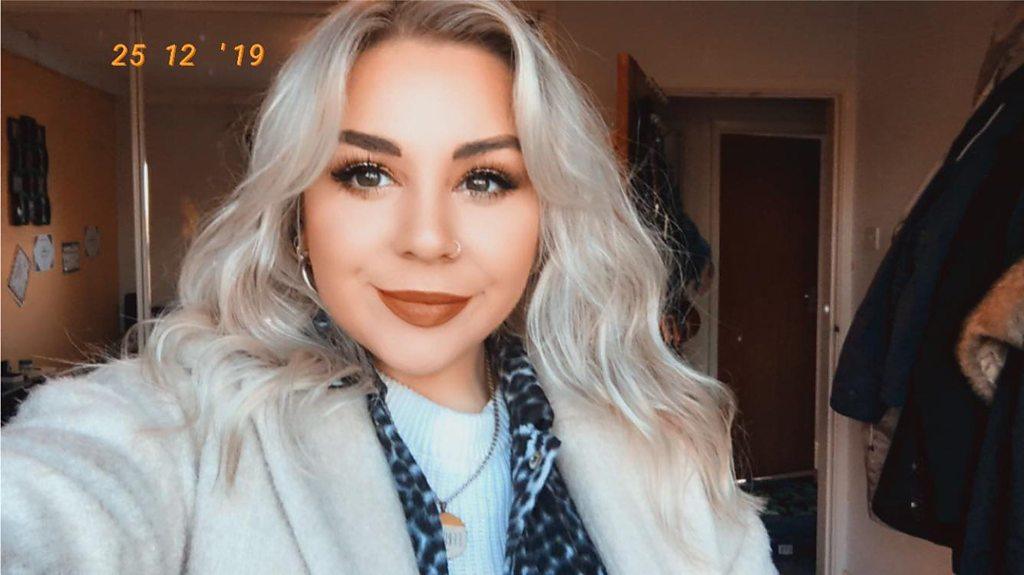Coronavirus: Living with eating disorders in lockdown
- Published
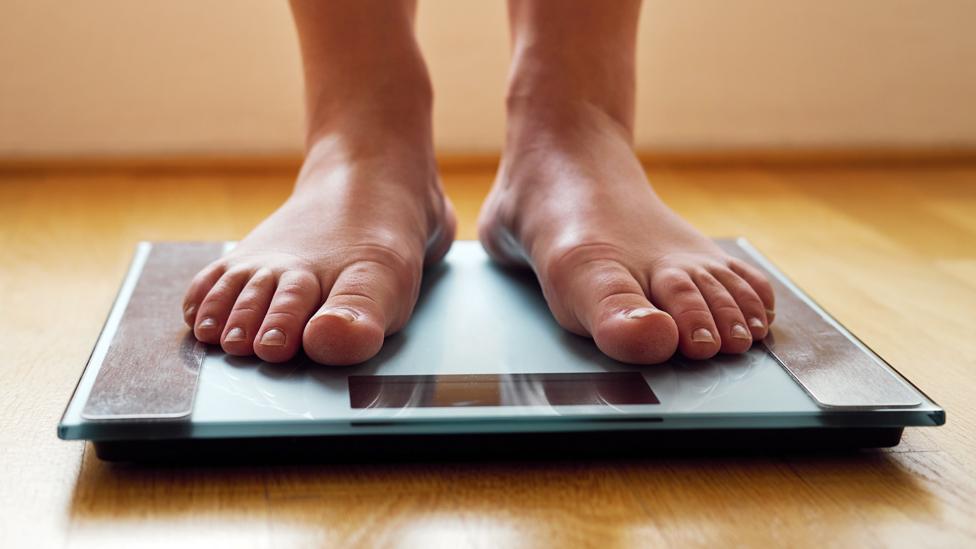
According to the NHS, an eating disorder is when you have an unhealthy attitude to food
The coronavirus lockdown has been hard for many of us.
But for people with eating disorders, the increased time spent with family, lack of gym facilities and an upset to routine can intensify issues.
Beat, a charity for people with eating disorders in the UK, has seen a 73% surge in people accessing its services.
Izzy - not her real name - has relapsed during lockdown and is currently an inpatient in a psychiatric ward.
"Everything I relied on as a tool for surviving day-to-day was taken away overnight and the only thing I felt I had left was anorexia," she said.
"Eating disorders thrive in secrecy so when you're left alone with your own thoughts and no other distractions, they can take over, which is what I feel happened to me," said the 24-year-old from Belfast.
Due to stockpiling and disrupted supply chains in supermarkets, Izzy was unable to access certain foods and negative news added to the deterioration of her mental health.
"Everything with coronavirus seems dirty, maybe even food too, so that becomes another reason to avoid it," she told BBC News NI.
'A constant battle'
Reduced outdoor exercise during lockdown riddled Izzy with guilt and her face-to-face treatment sessions were cancelled.
She "began to deteriorate quite rapidly", struggling to cope with the lack of routine.
In hospital, Izzy says daily life is "a constant battle as you're constantly fighting the monster inside your brain who grinds you down as the day goes on".
"If I were to describe anorexia, I'd say it's like having a voice inside of your head, the voice is your own but it's also not," she said.
"It's like another entity which pollutes your rational thoughts until when you're in the depths of it, it can be hard to distinguish between you and 'it'."
Ciana O'Muireadhaigh, 21, from Belfast, says that in the past year she has "never felt more liberated and free from my eating disorder", after an eight-year battle.
The Leeds College of Music student is living alone at her university flat and admits that at the start of lockdown she "definitely took advantage of the fact that I was eating alone".
"I could convince myself, 'Oh I don't need this today, and no-one can stop me', which probably contributed to me slipping a bit," she said.

Ciana says the best advice she was given is that "no one has ever regretted recovery but they regret not recovering until it's too late"
"Honestly these thoughts are in my head every day, but whenever I realise that thought has popped into my head I always remind myself of the dangerous cycle that can start from just one disordered thought and I don't want to go back that way again."
'You deserve so much better'
For the last two months, Ciana has been keeping well, mentally and physically, and she has a message for anyone currently struggling.
"I understand the anxiety of feeling out of control, it's a feeling I wish on no-one, but you need to know that this feeling is manifested by something that isn't you and I can tell you right now that you deserve so much better than it.
"Please be kind to yourself through all this, never lose hope that you'll be free from this."
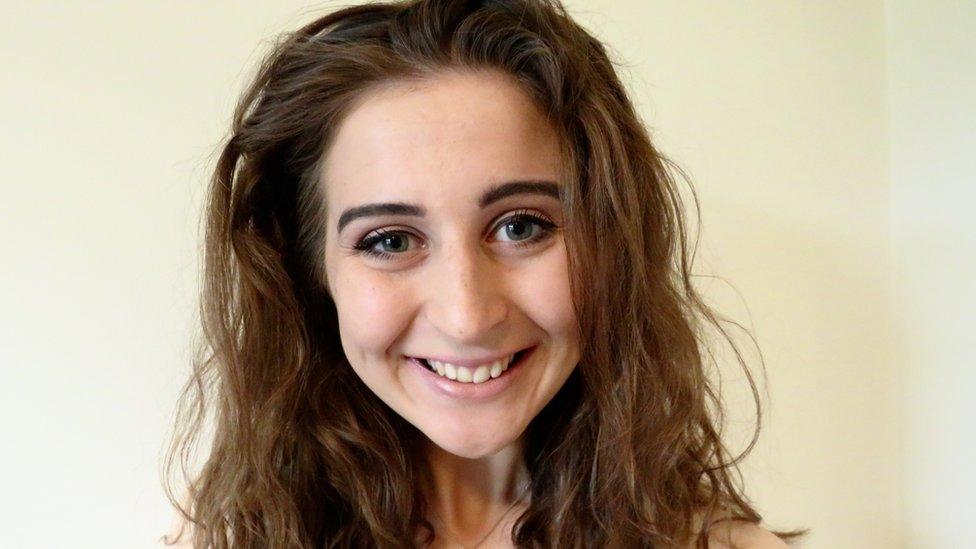
Naomi has recovered from her eating disoder and is now passionate about raising awareness
Primary teaching student Naomi Lloyd, from Lisburn, County Antrim, says she is "thankful to be at a stage of being in control" now.
In her teens, the 22-year-old had to take time out from her studies because of her anorexia and she was admitted to hospital for treatment.
Now recovered, Naomi uses her blog, external to raise awareness of eating disorders.
"Social media [during lockdown] can make you feel like you've got all this time now so there's no excuse not to be a healthier and better version of you, making healthy meals and exercising all the time, which can be dangerous," she said.
"There are people who maybe could do with having a healthier lifestyle but it's the perception that putting on weight is bad and losing weight is good that isn't healthy, and the constant comparisons to other people."
The three women are all involved with FightED which provides support and advice for people dealing with eating disorders.
Chairperson of FightED, Debbie Howard, was just 12 when she developed an eating disorder.
Now 37 and a trained psychotherapist, Debbie uses her experiences to help others.
"At their core, eating disorders are an emotional disorder, and provide the person with a way of coping and managing difficult feelings or emotions," she said.
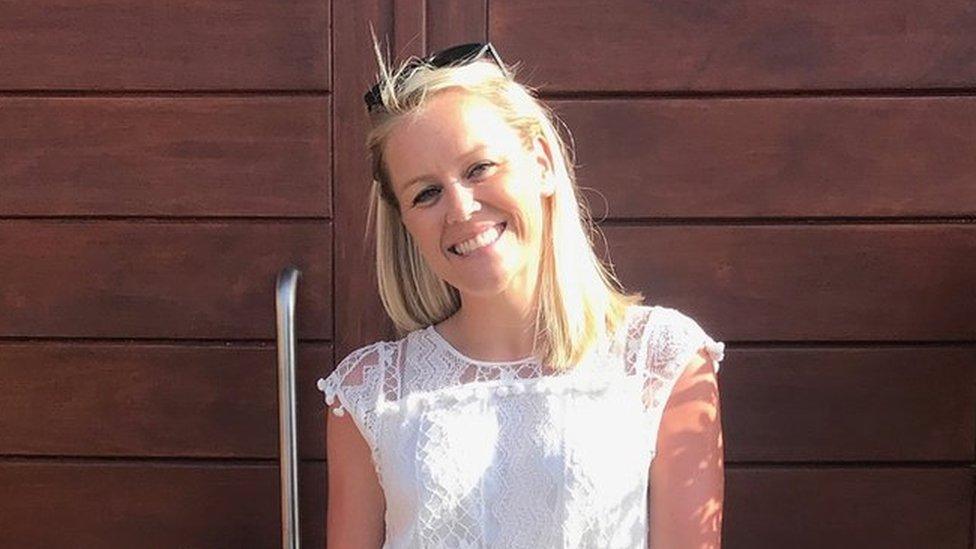
Debbie, who is chairperson of FightED, has been campaigning for better eating disorders services in NI
Debbie says many families may not have known the extent of their loved ones' condition until the lockdown, which may cause tension.
She says it is important to try to avoid conflict.
Instead, voice concerns in a compassionate way, and try to encourage the person to speak to their GP.
"Remember that eating disorders are an illness. The person is not choosing to do this, they are unwell.
"Think about how you would approach or support them if they had any other illness, and try to respond in the same way."
If you’ve been affected by eating disorders, help and support is available via the BBC Action Line.
Update 19 June 2020: This article was amended to take account of advice for the media in reporting about eating disorders.
- Published22 December 2019
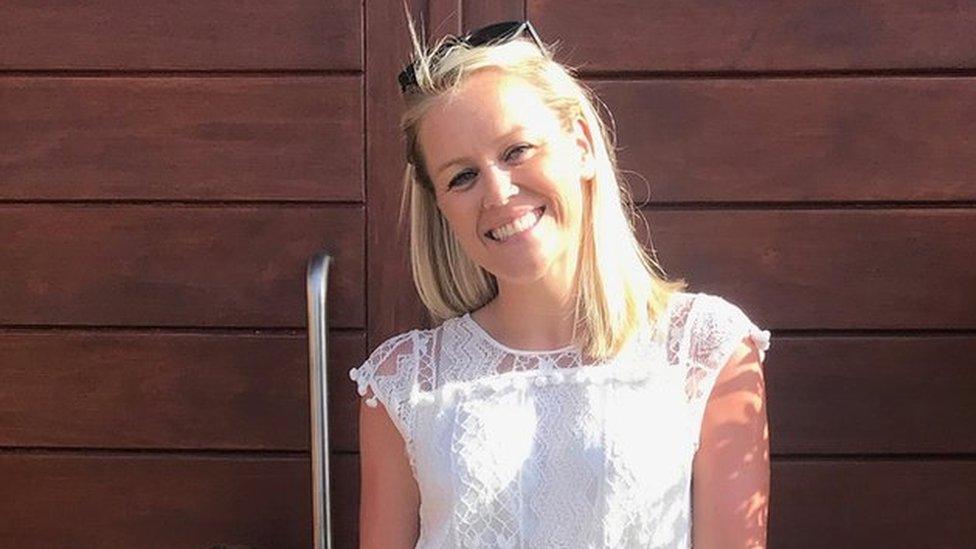
- Published21 April 2020
